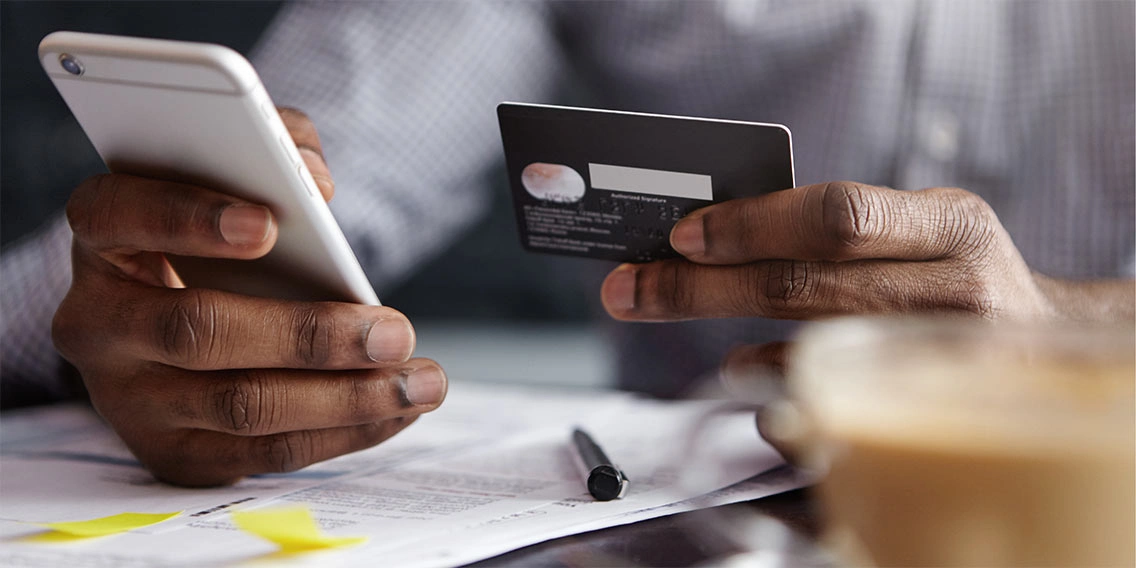Credit Cards
How Many Credit Cards Should I Have?
EXPECTED READ TIME:8 minutes
Many experts agree that having a credit card is a good financial decision. They’re the most secure payment method, offering better security options than most debit cards and creating a financial record you don’t get with cash. With the right card, you can earn great rewards for routine bill pay and shopping. Plus, credit cards are one of the easiest ways to build your credit score.
But how many credit cards should you have? Is there such a thing as too many credit cards? Let’s take a look.
Is it Good to Have Multiple Credit Cards?
Generally speaking, yes, it’s good to have multiple credit cards, but there isn’t a right or wrong answer here.
Having multiple credit cards can be handy, offering you backup payment methods, different savings or rewards, and a more diversified credit report. Multiple cards can also help you manage cashflow more efficiently.
However, managing multiple credit cards takes more work. It’s easier to run up debt when you carry multiple credit cards, and it can make personal finance more complicated when you’re juggling multiple billing cycles. Applying for too many credit cards at once can also drop your credit score.
It all depends on your lifestyle and your goals.
How Many Credit Cards Does the Average American Have?
The average American has 3.06 credit cards. However, the exact number and mix of cards can vary a lot depending on a number of factors such as age, credit score, income, and debt load. For instance, Forbes reports that millennials average fewer cards (2.5 each) than baby boomers (who carry about 3.5 cards).
What matters most with credit cards is how you manage them — whether you make full, on time payments consistently.
How Many Credit Cards Is Too Many?
There’s no legal limit on the number of credit cards you can have. What matters most with credit cards is how you manage them — whether you make full, on time payments consistently.
As a general rule, your monthly credit card payments for all your cards should never be more than 10% of your take-home pay. It might seem like adding another card could ease your burden if you’re struggling to make ends meet, but in reality another card is likely to make your situation worse unless you’re doing a credit card balance transfer to pay off your balance.
Opening too many accounts too quickly will drop your score.
Does Having Multiple Credit Cards Help Your Credit Score?
The answer depends on your financial situation. Having multiple credit cards can sometimes help your credit score. It increases your available credit and gives you more lines of credit, both of which can raise your score.
However, having multiple credit cards can hurt your credit score, too. Opening new accounts or opening too many accounts too quickly will drop your score. Your score will also drop if you don’t make full, regular payments on all of your credit cards.
Should you close unused credit cards? In most cases, no. Closing a credit card will hurt your credit score while leaving an account open won’t have a huge impact. However, there are a few exceptions to this rule.
Pros and Cons of Using Multiple Credit Cards
As we have suggested, there isn’t a hard and fast answer to whether you should sign up for multiple cards. Whether having more than one card benefits you depends on how you use them and how well you manage your balances.
| Pros | Cons |
|---|---|
| Creates a bigger credit file | Fees from multiple cards can be costly |
| Keeps credit utilization low | Too many cards can make you look risky to lenders |
| Offers access to a variety of rewards programs | Becomes easy to lose track of accounts |
| Extra backup payment methods | Unused cards become inactive |
Pro: Creates a Bigger Credit File
Credit bureaus often recommend people carry five or more lines of credit. That doesn’t mean you have to have five different credit cards — In fact, a mix of credit is better.
But why five?
Each month credit bureaus will receive payment information from each credit card or loan you pay on, in theory building your payment history five times faster than with just one card.
Credit bureaus often recommend people carry five or more lines of credit.
Pro: Keeps Credit Utilization Low
Having multiple credit cards raises your total amount of available credit and keeps your credit utilization, or the percent of your credit that you’re using, low. Lower credit utilization raises your credit score. In fact, people with the highest credit scores typically use less than 10% of their available credit.
Pro: Offers Access to a Variety of Rewards Programs
Different kinds of rewards cards offer different benefits. Carrying multiple credit cards lets you take advantage of these different benefits. For instance, you might have a cashback rewards card for everyday shopping and travel rewards card for family vacations.
Pro: Provides Backup Payment Methods
If you’ve ever lost your debit or credit card, you know what a hassle it can be, from fumbling in your pocket or purse at the checkout to being stranded on vacation.
Assuming you keep one or two at home, or you simply took one out of your wallet and misplaced it, having multiple credit cards means that if one card is misplaced, lost, frozen, or stolen, you have a backup payment method you can count on.
Pro: Convenience
Some merchants only accept certain credit cards (like Visa or Mastercard, for example). If you only have one kind of card (or two from the same network), you might find yourself scrambling to make a purchase. By having two or more cards from different networks in the U.S. (like Visa, Mastercard, Discover, and American Express), you’ll have a way to pay anywhere you shop.
People with the highest credit scores typically use less than 10% of their available credit.
Con: Fees From Multiple Cards Can Be Costly
Many credit cards (especially rewards cards) come with annual fees. The benefits of a card can outweigh its fees, but if you’re juggling multiple credit cards then you may be racking up more fees than you realize.
Con: Too Many Cards Can Make You Look Risky to Lenders
Some lenders are cautious of people with too many open lines of credit. This can be true even if your credit cards are paid down. There is no set limit to the number of credit cards you can have before lenders consider you risky, but it’s safest to only keep as many as you need.
Con: Becomes Easy to Lose Track of Accounts
Every credit card you open will have its own terms and conditions including a unique interest rate, billing cycle, and due date. Having multiple open cards increases your chances of missing a payment.
You can choose to automate your payments for each card or request to change all your due dates to the same day, but you’ll have to do that individually for each card and you’ll still need to monitor your balances regularly.
Con: Unused Cards May Become Inactive
As you open new credit cards, you may find some of your old cards become unused. Unused cards aren’t a problem unless the issuer decides to close them for inactivity. Credit card companies are not required to notify you if your card is closed due to inactivity even though having that card closed can contribute to your credit score by reducing your available credit and the average age of your credit lines.
Having multiple open cards increases your chances of missing a payment.
How Many Credit Cards Should You Have?
The best way to decide how many credit cards you should have is to reflect on your financial situation. Here’s what you should consider:
Spending Habits
Some people like to shop using cash. Others prefer to use their debit card for everything. There are no interest charges with these methods and you’re less likely to overspend. These kinds of shoppers can easily get by with one or two credit cards for big purchases or emergencies.
However, if you prefer to charge all your expenses and pay off your credit card at the end of the month, then you may need more credit cards to spread out your expenses and reap the best rewards.
Credit card interest and fees can make emergencies more expensive in the long run.
Different Rewards
There are three main types of rewards cards and they fit different kinds of shoppers. If your goal is to get the most from your rewards, you’ll need to choose the right rewards card for the way you shop. You’ll also need to understand how to maximize your credit card rewards.
Credit Score Goals
If your goal is build (or rebuild) your credit score, it’s important to be smart about your debt. You might think another credit card is the right option, but there are other ways to build credit that may be a better fit for your situation.
Emergencies
Many people turn to credit cards to cover emergencies, and that isn’t necessarily a bad idea. If you have to replace a blown-out tire today but you’re sure your next paycheck will cover it, using your credit card makes sense.
But it’s important to be careful turning to credit cards for emergencies. Credit card interest and fees can make emergencies more expensive in the long run. A safer strategy is to build an emergency fund to see you through these crises.
The Takeaway
Evaluating your credit card usage is an important part of financial wellness. If you’re happy with the number of cards you have currently, then maybe it’s time to look at other areas of your finances you can start working on.
But if you’ve decided it’s time to add another credit card to your wallet, the good news is there are lots of great options out there to help you build your credit, max out rewards, and reach your most important financial goals.
Credit Cards for the Way You Live
Discover the diverse offering of products, services, and support available to our members.




